What Caught Our Attention: At times we get to just appreciate the moment: A paper focused on repetition — specifically, linking repeated exposure to travel videos and actual visits to the location — got retracted for duplication. The notice says the duplications were “inadvertent;” perhaps these researchers were motivated by their research? This isn’t the first time authors have been tripped up by their own subjects — in 2015, a researcher retracted his guidelines on plagiarism for…you guessed it. (Plagiarism.) Continue reading Caught Our Notice: An article about repetition is duplicated? Priceless
Category: austria
Authors retract paper linking nuclear power to slow action on climate change
 Do pro-nuclear energy countries act more slowly to curb the effects of climate change? That’s what a paper published in July in the journal Climate Policy claimed. But the hotly debated study was retracted last week after the authors came to understand that it included serious errors.
Do pro-nuclear energy countries act more slowly to curb the effects of climate change? That’s what a paper published in July in the journal Climate Policy claimed. But the hotly debated study was retracted last week after the authors came to understand that it included serious errors.
An August 22 press release about the original study has been retracted by the University of Sussex, and no longer appears on ScienceDaily. An archived version notes: Continue reading Authors retract paper linking nuclear power to slow action on climate change
Paper on pine tree genetics chopped for duplication
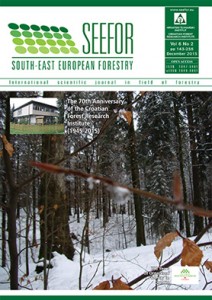 A paper on genetic variability in Austrian pine trees apparently didn’t vary enough from other work.
A paper on genetic variability in Austrian pine trees apparently didn’t vary enough from other work.
The journal is now retracting the 2012 paper for having significant overlap with another paper published in 2008. Another researcher pointed out the duplication — which was unintentional, according to the note, the result of
an apparent failure in communication between the co-authors on both papers which caused the papers to be overlapped.
The overlapping papers share a first author, Aleksandar Lucic, who works at the Institute of Forestry in Serbia. The other author on both papers is Vasilije Isajev, at the Faculty of Forestry in Belgrade.
“Analysis of Genetic Variability of Austrian Pine (Pinus nigra Arnold) in Serbia Using Protein Markers” was published in South-East European Forestry. The journal is not indexed on Thomson Scientific’s Web of Knowledge.
Here’s the retraction note:
Continue reading Paper on pine tree genetics chopped for duplication
Authors retract abstract following misconduct by diabetes biotech
 Earlier this year, authors retracted a meeting abstract about a diabetes drug, following the revelation that the biotech that funded the trial committed misconduct.
Earlier this year, authors retracted a meeting abstract about a diabetes drug, following the revelation that the biotech that funded the trial committed misconduct.
The retraction was initiated by corresponding author Itamar Raz, at Hadassah Medical Center in Israel. The journal didn’t receive a response from any co-authors who were affiliated with the biotech company, Andromeda, so they were not included in the retraction process.
A few months after Hyperion Therapeutics acquired Andromeda’s diabetes drug DiaPep277, Hyperion announced it had evidence that some employees of Andromeda had “engaged in serious misconduct,” such as using un-blinded data and manipulating the analyses. Two relevant studies on the drug, designed to block the immune response that leads to type 1 diabetes, were retracted last year.
Here’s the retraction note for the abstract “Abstracts of the 50th Annual Meeting of the EASD, Vienna 2014. ‘Evaluation of DiaPep277® treatment in type 1 diabetes by integrated analysis,’” published in the May issue of the journal:
Continue reading Authors retract abstract following misconduct by diabetes biotech
Pain paper scratched for authorship issues
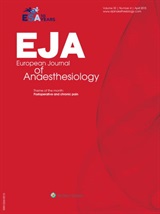 A group of pain researchers in Austria has lost their 2014 paper in the European Journal of Anaesthesiology because one of the authors wasn’t, well, one of the authors.
A group of pain researchers in Austria has lost their 2014 paper in the European Journal of Anaesthesiology because one of the authors wasn’t, well, one of the authors.
The article, “Intravenous nonopioid analgesic drugs in chronic low back pain patients on chronic opioid treatment: A crossover, randomised, double-blinded, placebo-controlled study,” came from a team at the Medical University Vienna and Evangelical Hospital Vienna.
During the study, the authors tested whether intravenous infusions of nonopioid drugs (such as paracetamol, or Tylenol) helped people with chronic back pain who take opioids regularly. They found that people’s pain levels decreased in the days leading up to treatment, when they were receiving a placebo, but not after the actual infusion. The results likely stem from “expectation-related mechanisms,” they wrote. Continue reading Pain paper scratched for authorship issues
Retractions follow revelations of misconduct by diabetes biotech
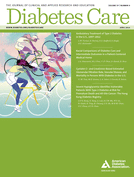 Several months after a drug company cancelled development of a potential diabetes cure because it found evidence that a biotech they had recently acquired had committed misconduct in studies of the drug, two retractions of relevant studies have appeared.
Several months after a drug company cancelled development of a potential diabetes cure because it found evidence that a biotech they had recently acquired had committed misconduct in studies of the drug, two retractions of relevant studies have appeared.
The research involves DiaPep277, which, as Josh Levy explained here in September, “would cause the immune system to stop attacking beta cells,” the cells in the pancreas that produce insulin. But Hyperion Therapeutics, which had acquired DiaPep277 developer Andromeda Biotech in June, announced in September that it had
uncovered evidence that certain employees of Andromeda Biotech, Ltd., which Hyperion acquired in June 2014, engaged in serious misconduct, including collusion with a third-party biostatistics firm in Israel to improperly receive un-blinded DIA-AID 1 trial data and to use such data in order to manipulate the analyses to obtain a favorable result.
The retractions are both of papers published in Diabetes Care in May 2014. Here’s the notice for “Treatment of Recent-Onset Type 1 Diabetic Patients With DiaPep277: Results of a Double-Blind, Placebo-Controlled, Randomized Phase 3 Trial:” Continue reading Retractions follow revelations of misconduct by diabetes biotech
Phantom authorship forces retraction of electron paper
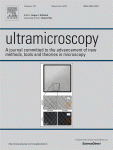 Ultramicroscopy has retracted a paper it published earlier this year after the corresponding author admitted to submitting the paper without the consent of his colleagues.
Ultramicroscopy has retracted a paper it published earlier this year after the corresponding author admitted to submitting the paper without the consent of his colleagues.
The article, “The post-peak spectra in electron energy loss near edge structure,” came from a group led by one Feng Tian, a materials scientist at Shanghai University for Science and Technology. The other authors were Peter Shattschneider and Micheal Stoger-Pollach, of the Vienna University of Technology. Except that they weren’t.
According to the retraction notice: Continue reading Phantom authorship forces retraction of electron paper
Cardiology researcher who admitted to fraud earns four-year funding ban
![]() A researcher who admitted in 2012 to “intentional and systematic manipulation” of data and had two papers retracted has been banned from funding by the German Research Foundation (DFG).
A researcher who admitted in 2012 to “intentional and systematic manipulation” of data and had two papers retracted has been banned from funding by the German Research Foundation (DFG).
Dennis Rottländer, who will also be returning prize money he was awarded for the research, worked in Uta C. Hoppe’s lab at the University of Cologne. Hoppe, now at University Hospital Salzburg, remains under investigation, according to a statement from the DFG.
Excerpt: Continue reading Cardiology researcher who admitted to fraud earns four-year funding ban
A partial retraction appears for former Salzburg crystallographer who admitted misconduct
 A paper by a crystallographer fired from his university for misconduct has been partially retracted.
A paper by a crystallographer fired from his university for misconduct has been partially retracted.
Last year, we covered the case of Robert Schwarzenbacher, formerly of Salzburg University. Schwarzenbacher had provided the crystallographic data for a paper in the Journal of Immunology, but those results raised questions with another crystallographer and prompted an investigation by the university. Schwarzenbacher admitted he’d committed misconduct, although he recanted at one point, and was eventually fired.
Now, the authors have retracted the crystallographic data from the Journal of Immunology paper. Here’s the partial retraction, which is listed as a correction:
Continue reading A partial retraction appears for former Salzburg crystallographer who admitted misconduct
Retraction for water researchers who ripped off dissertation
 A pair of engineers at Hohai University in Nanjing, China, has lost their 2012 paper in the Journal of Computational and Applied Mathematics. The reason: The article, “Study of the New Leon model for concrete failure,” wasn’t theirs to publish.
A pair of engineers at Hohai University in Nanjing, China, has lost their 2012 paper in the Journal of Computational and Applied Mathematics. The reason: The article, “Study of the New Leon model for concrete failure,” wasn’t theirs to publish.
According to the retraction notice (which is dated September 2013 but has already appeared in ScienceDirect): Continue reading Retraction for water researchers who ripped off dissertation
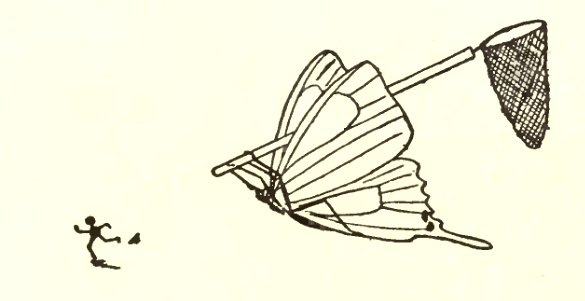 Title:
Title: